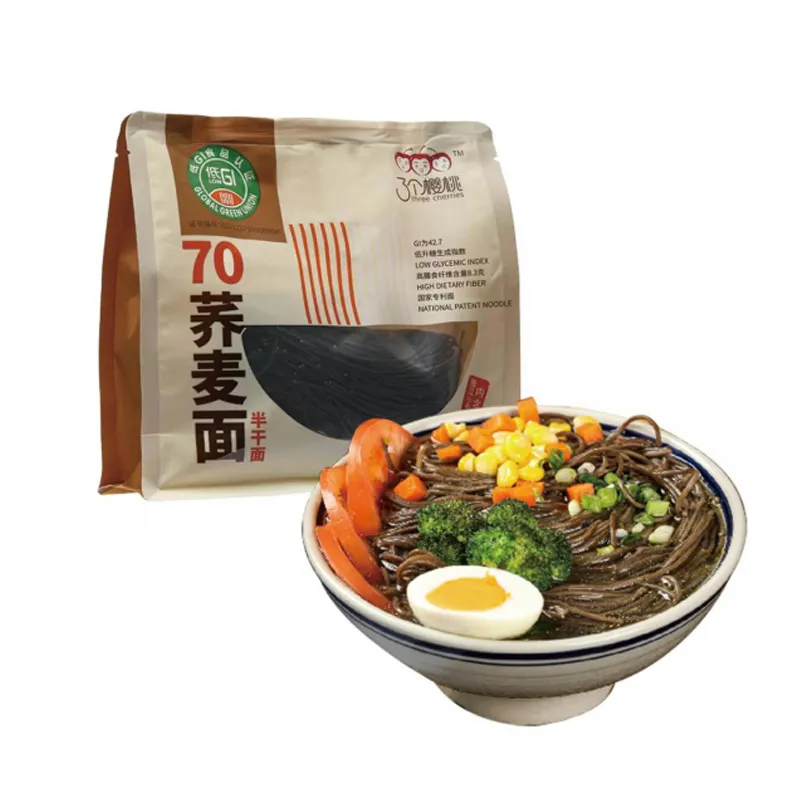Are Soba Noodles Safe for Gluten-Free Diets and What You Should Know
Are Soba Noodles Gluten-Free? Understanding this Popular Dish
Soba noodles, a staple of Japanese cuisine, have gained international popularity for their nutty flavor and unique texture. Made primarily from buckwheat flour, soba often finds its way into various dishes ranging from soups and salads to stir-fries. However, a common question that arises among health-conscious consumers or those with dietary restrictions is are soba noodles gluten-free?
The answer is a bit nuanced. Although traditional soba noodles are made from buckwheat, which is naturally gluten-free, many commercially available soba noodles contain a mixture of buckwheat and wheat flour. This is mainly due to wheat's availability, cost, and the desirable elasticity it provides to the noodles. As a result, not all soba noodles are gluten-free.
Are Soba Noodles Gluten-Free? Understanding this Popular Dish
In addition to label reading, it’s also vital to consider cross-contamination. In facilities where products containing gluten are processed, there is a risk of cross-contact. Even if a product is made with only buckwheat flour, it could have been produced in a facility that also processes gluten-containing grains. Therefore, choosing brands that have certified gluten-free labeling can offer an extra layer of assurance.
are soba gluten free

For those exploring the culinary world of soba, it's important to understand the different types of soba noodles available. Besides the plain buckwheat soba, there are variations that include added ingredients, such as vegetables or spices, which may also contain gluten. The best practice is to always check the ingredient list and the available allergen information.
Aside from the gluten aspect, buckwheat noodles come with numerous health benefits. Buckwheat is a nutrient-dense food that is rich in fiber, vitamins, and minerals. It is particularly high in flavonoids, which are known for their antioxidant properties. Moreover, buckwheat is a complete protein, meaning it contains all nine essential amino acids, making it an excellent choice for vegetarians and those looking to increase their protein intake without relying on animal products.
If you are in search of gluten-free soba noodles, there are plenty of alternatives on the market. Some companies produce gluten-free soba made from other grains, such as brown rice or quinoa, which can offer similar flavors and sensations in dishes. These gluten-free options allow those with dietary restrictions to enjoy the taste and textures reminiscent of traditional soba dishes without the health risks associated with gluten.
In conclusion, while traditional soba noodles have the potential to be gluten-free due to their primary ingredient, buckwheat, it is essential to be vigilant when purchasing soba products. Always read labels, check for certifications, and be aware of possible cross-contamination. By doing so, you can safely enjoy soba noodles and the associated health benefits they bring. Whether you’re using them in a hot broth or as part of a cold noodle salad, soba can still be a part of a varied and enjoyable gluten-free diet. So, next time you’re at an Asian market or looking for a new pasta alternative, consider giving gluten-free soba a try!
-
Unleash Your Inner Chef with Delectable Italian Pasta CreationsNewsAug.01,2025
-
Savor Health and Flavor: Irresistible Soba Noodles for Sale Await!NewsAug.01,2025
-
Nourish Your Body with Premium Organic Ramen - A Culinary Delight AwaitsNewsAug.01,2025
-
Elevate Your Dishes with Our Exquisite Kinds of Egg NoodlesNewsAug.01,2025
-
Dive into Flavorful Convenience with Our Ramen OfferingsNewsAug.01,2025
-
Discover Exquisite Types of Naengmyeon and Chilled Soba NoodlesNewsAug.01,2025
-
Is Whole Wheat Pasta Healthy?NewsMay.30,2025
Browse qua the following product new the we

















































































































